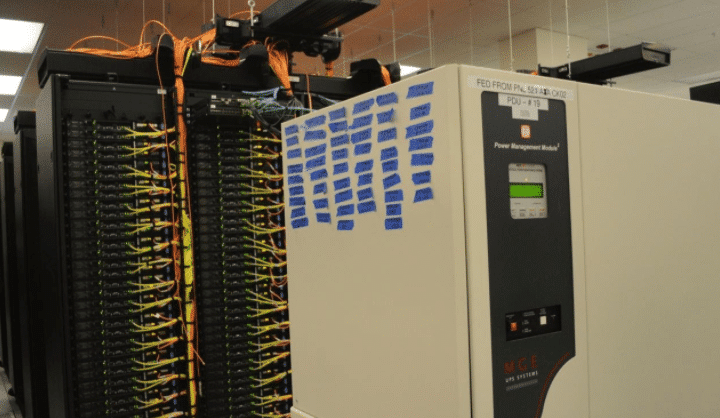Power outages aren’t just a nuisance, but can also cost offices and industries a lot of money. Loss of unsaved data and potential corruption could happen when equipment is forced to restart. Hospitals are more gravely impacted, which leads to an urgent need for UPS systems as essential equipment.
It is expected that the market for generators and UPS Systems will grow by 25% over the next several years. This is due in part to the reliability of UPS systems, in addition to the increasing numberof power outages in the US. US. From 2008 to 2017, California experienced more than 4,300 blackouts.
There are a number of UPS (Uninterrupted Power Supply) systems designed to keep offices, hospitals, and industries running with seamless power supply in case of power failure. Most of the time, UPS systems are targeted towards the IT department, ensuring that the critical load from servers and data centers stay afloat.
UPS Systems as a Backup Power Source for Industries
There are a number of differences between standard and industrial UPS systems.
Where a residential or corporate office’s requirements will be simply ensuring the servers or PCs stay up until the backup generator kicks in, industrial requirements are much more demanding. UPS systems will have to ensure the whole plant keeps running at peak efficiency until the generator kicks in. Additionally, industrial UPS systems are also designed for harsher environmental settings than a standard UPS. A standard UPS requires a clean, temperature-regulated environment. The slightest power outage could lead to safety risks on top of resetting or restarting costs combined with the lost revenue of downtime.
Here are a few common differences between standard and industrial UPS systems:
Design/Type
For industries, there are six types of UPS systems that can be used.
- Standby
- Line Interactive
- Standby On-Line Hybrid
- Double Conversion On-Line
- Delta Conversion On-Line
- Standby Ferro
While standard three-phase UPS systems have an average life span of 10-12 years, there are some industrial systems that are designed to last more than 20 years. Smaller kVA rated units might only have a design life of 5-7 years. A unit’s manufacturer recommended lifecycle is an important consideration when choosing a system that’s right for your business.
Power
The power of a UPS system depends on the battery-size installed. Systems that are smaller can range from 20 kW to 100 kW (125 kVA), while large industrial systems are three-phased with operating modes ranging from 500 to 1500 kVA.
Usage
Household or office UPS might need to offer a small support time, ranging from somewhere between 15-30 minutes. This is more than enough time for the backup power source to kick in.
Industrial systems, on the other hand, need to give at least 60-480 minutes of backup time. Also, the generator needs to be able to run and come up to a certain energy state before taking the load off UPS systems.
To understand which UPS size would be fit for which industry based on commercial energy usage, see the table below:
| Industry | Critical Load (Max) |
| Major Data Centers | 1000 kVA |
| Manufacturing Facilities | 470-1300 kVA |
| Network Nodes | 250-800 kVA |
| Corporate Intranets (each) | 50-200 kVA |
| Hospitals | 80-225 kVA |
Will UPS Systems Replace Generators?
While UPS systems are a great backup power source, they cannot replace generators because of the limitations in the backup timings. Because, as long as they are kept full, industrial diesel generators will keep running. Additionally, as long as the battery is working for a UPS, the system will keep running.
A prime example of this is a hospital generator. Although the UPS provides uninterrupted power supply, it cannot sustain this for long periods. There are options to get generators to start automatically, but there is still a slight interruption in the power supply. Even a few seconds of start-up time is enough to drop the power load. This can cause devastating power loss to devices from servers to sensitive hospital equipment providing critical life safety. A UPS provides the back-up power via the Automatic Transfer Switch in order to keep these components online without disruption.
Different UPS systems are suitable for different sectors and applications. Industrial systems are designed to handle harsh and rugged environments. This is the perfect solution to ensuring your plant faces no hitches during its operation. Therefore, if a business requires a UPS to back-up sensitive medical equipment, there are specific units built to suit the waveforms necessary in order not to disrupt the functionality of medical devices .
Odyssey Power specializes in power supply solutions specifically tailored to your needs. Therefore, if you are looking to get a generator or UPS installed at your facility, we can help! As a company servicing both UPS and generators, we are uniquely qualified to evaluate your full back-up power needs.

